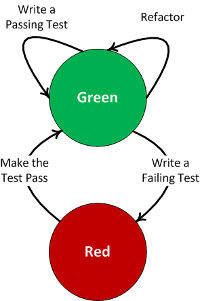I recently found an interesting web site called Making Good Software. I really liked this guy’s site, he might just save me from writing down a lot of my own thoughts! Unlike my typical post, his are very short and easy to read. I highly recommend checking it out and popping through his other recent posts too. Nothing revolutionary, but just great reminders of how we should be thinking as we write new software. The following blog entries caught my attention:
- 10 Commandments for Creating Good Code
- 5 Tips to Improve Code Readability
- How to Become a Good Software Developer
- Comments are Evil
- TDD is not about Testing
The Comments are Evil statement really hit home with me… I have always said that code should basically be self-documenting. This statement is usually frowned upon some developers and managers; some people might think I’m just lazy. Farthest thing from the truth! By enforcing good coding practices with automation like Checkstyle, PMD, and FindBugs, combined with placing a high value on class and variable names, placing logic in the proper place, and keeping methods and classes small, most comments are redundant and typically provide little value. It was very interesting how the author associated comments with the DRY (Don’t Repeat Yourself) principal. Interesting thought, when your comments simply repeat what the code is already saying!
 I also place a huge value on refactoring. I borrowed the image at the right to further highlight the point. There are many articles on the “Red Green Refactor” approach worth reading, helping to tie this all together. I guess one of my personal goals is always to create that elegant (simple and clean) solutions, which never happens the first time! Looping through R-G-R a few time helps achieve that elegance, and you end up with code that requires less comments.
I also place a huge value on refactoring. I borrowed the image at the right to further highlight the point. There are many articles on the “Red Green Refactor” approach worth reading, helping to tie this all together. I guess one of my personal goals is always to create that elegant (simple and clean) solutions, which never happens the first time! Looping through R-G-R a few time helps achieve that elegance, and you end up with code that requires less comments.
Some of the comments in the Making Good Software blog are very interesting has well; many people throwing in their two cents, both pro and con on the value of comments. The author also states that comments cannot be completely eliminated. The code we write is never perfect and probably needs a little extra context to explain the hopefully infrequent imperfections. I think the bottom line is to focus on quality code; eliminate the obvious, limited value comments, and comment the pieces that are truly intricate. If you are writing a lot of comments, then you better go back and look at your design, as something is probably not quite right.










November 25th, 2009 10:13 am
I am a big believer in comments to detail how or when to use the code. But I truly hate poorly written comments and especially comments that have been cut and pasted from somewhere else and are just plain wrong. I do believe comments are evil unless they are clear, simple, and CORRECT.
I liked the “10 commandments” article. I’m a little surprised that he doesn’t mention anything about having a design outlined before you start coding.